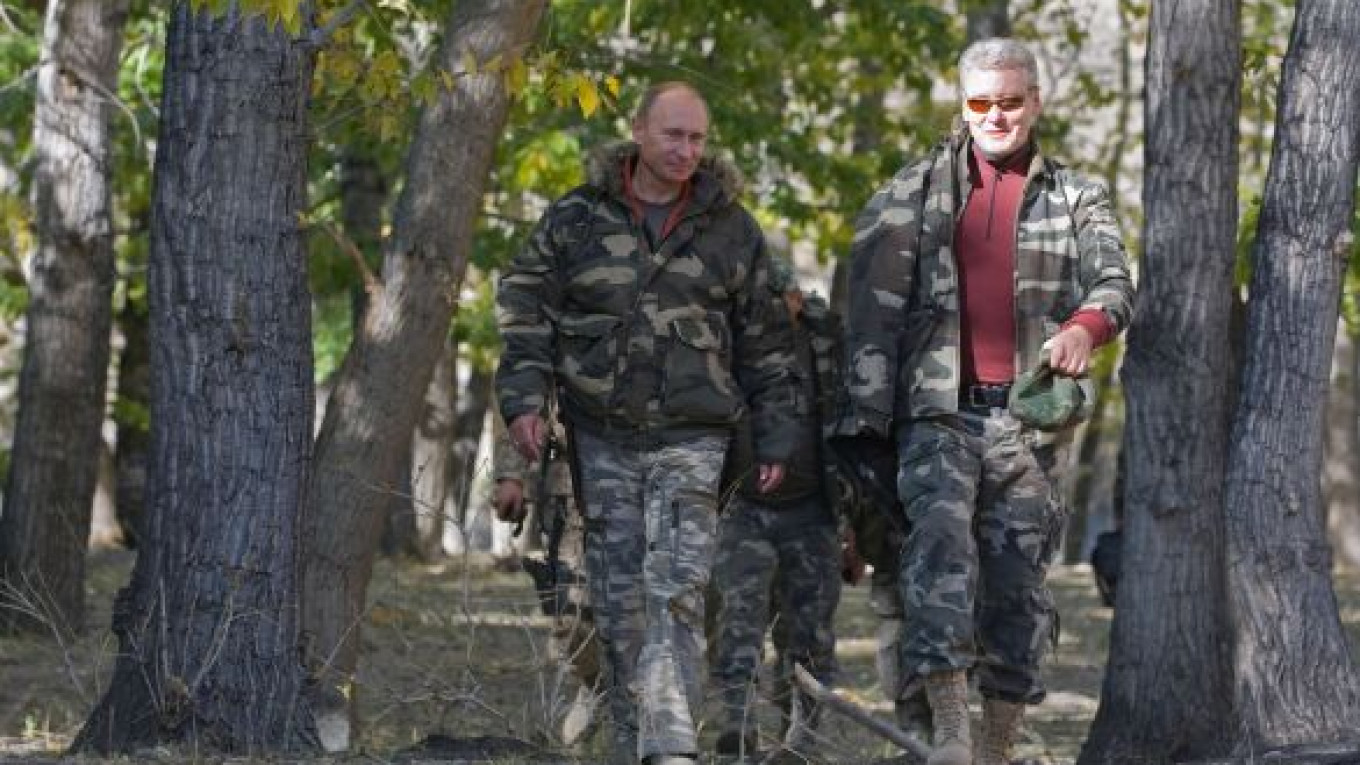Mayor Sergei Sobyanin fired two city district heads, appointed a new prefect and proposed that City Hall officials start their work an hour earlier to ease Moscow traffic.
The new mayor visited the city's Central and Northern administrative districts on Saturday, following a weekend tradition established by his predecessor but upgrading it by not announcing in advance what he would inspect.
Sobyanin criticized local authorities for the litter he found on several streets and for kiosks crowding areas around Belorussky Station in the Tverskoi district and the Ulitsa 1905 Goda metro station in the Presnensky district.
He said the kiosks obscured a monument to participants of the 1905 revolution, the electrical wiring appeared to be “held together by snot,” and “sanitary standards are not observed,” Interfax reported. He did not elaborate.
He fired the heads of the Tverskoi and Presnensky districts after the inspection, without naming any immediate replacements, the report said.
Sobyanin appointed the former head of the city's land resources department, Viktor Damurchiyev, as prefect for the Northwestern Administrative District on Saturday and made the previous prefect, Yelena Vasina, first deputy to the prefect of the Central district, Sergei Baidakov, Interfax said.
On Friday, Sobyanin said he "proposed investigating the possibility" of requiring city officials to begin their workday at 8 a.m. rather than 9 a.m.
"Throughout the world, civil servants get to work earlier than everyone else," Sobyanin told a meeting of city officials convened to discuss streamlining city transport, according to a City Hall statement.
Sobyanin also ordered officials to prepare a plan by Tuesday to "normalize" the city's notoriously bad traffic. He told them to coordinate the plan with the Moscow region, which surrounds the capital.
A Message from The Moscow Times:
Dear readers,
We are facing unprecedented challenges. Russia's Prosecutor General's Office has designated The Moscow Times as an "undesirable" organization, criminalizing our work and putting our staff at risk of prosecution. This follows our earlier unjust labeling as a "foreign agent."
These actions are direct attempts to silence independent journalism in Russia. The authorities claim our work "discredits the decisions of the Russian leadership." We see things differently: we strive to provide accurate, unbiased reporting on Russia.
We, the journalists of The Moscow Times, refuse to be silenced. But to continue our work, we need your help.
Your support, no matter how small, makes a world of difference. If you can, please support us monthly starting from just $2. It's quick to set up, and every contribution makes a significant impact.
By supporting The Moscow Times, you're defending open, independent journalism in the face of repression. Thank you for standing with us.
Remind me later.


